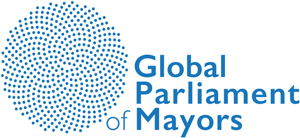By Marvin Rees: October 1, 2018
The Labour mayor of Bristol on how local issues are global issues.
As the leader of a city like Bristol, I come face to face with unique challenges every day. Across the world other international cities will also have their quirks – but we are united through our shared challenges that come from global issues, from migration and global security to population inequalities and climate change.
Some 55 per cent of the world’s population live in cities, and this set to rise to 68 per cent by 2050. With the majority of the world now classed as urban, governments and international frameworks cannot afford to make choices without consulting city leaders.
In the UK we need a focus on local government which has the knowledge of what works on the ground and the right to self-govern. As part of the GPM we are able to promote the importance of collective city decision-making across national borders as a route to discover new solutions to these international problems.
My argument is not that all city leaders are individually necessarily ground breaking creative thinkers: we know that not to be the case. My argument is that the delivery-focused kind of politics that is possible at the city level can open the door to, and even demands, innovation in a way that national politics does not. More than this, it is it is that cross border collaborations of cities can generate ways of thinking that individual cities and national governments cannot.
Earlier this year I spoke at the UN negotiations on the Global Compact for Migration. Global institutions such as the UN can benefit from more proactively involving and collaborating with cities. Places like Bristol offer a grass roots viewpoint that can help to shape and test effective policy.
It is because of this that I am welcoming mayors from across the world to Bristol as the host city of the GPM Annual Summit in October.
A key focus of this year’s summit will be migration. This subject is close to my heart, with 187 countries of birth represented in the population of my home town, Bristol. I therefore want to learn from Mayor Yvonne Aki-Sawyerr of Freetown, Sierra Leone’s capital city, who will tell us how she works to both welcome migrants and refugees into her city, and to improve employment opportunities so citizens want to stay in the city and contribute.
Following the summit, Bristol will also host the first formal meeting of the UK’s Core City leaders and Combined Authority mayors. Building these relationships will be integral to establishing a united cross-partisan voice to challenge the status quo of over-centralisation in the UK. This will be a meeting of the most powerful politicians outside of Westminster, that will give voice to the narrative of decentralisation within our country.
Whilst many national governments continue to be in a state of flux, we are bringing cities together on national and international level so that we can influence the global policies and frameworks which affect our citizens.
If we only look to our national governments for solutions we will continue to be on the back foot. But if we listen to the cities, we can find hope that a politics of inclusion can start to break through with new and informed solutions to the global challenges of our age.
Marvin Rees is the elected Labour mayor of Bristol.
Read the full article here. https://www.citymetric.com/politics/marvin-rees-case-global-parliament-mayors-4243
